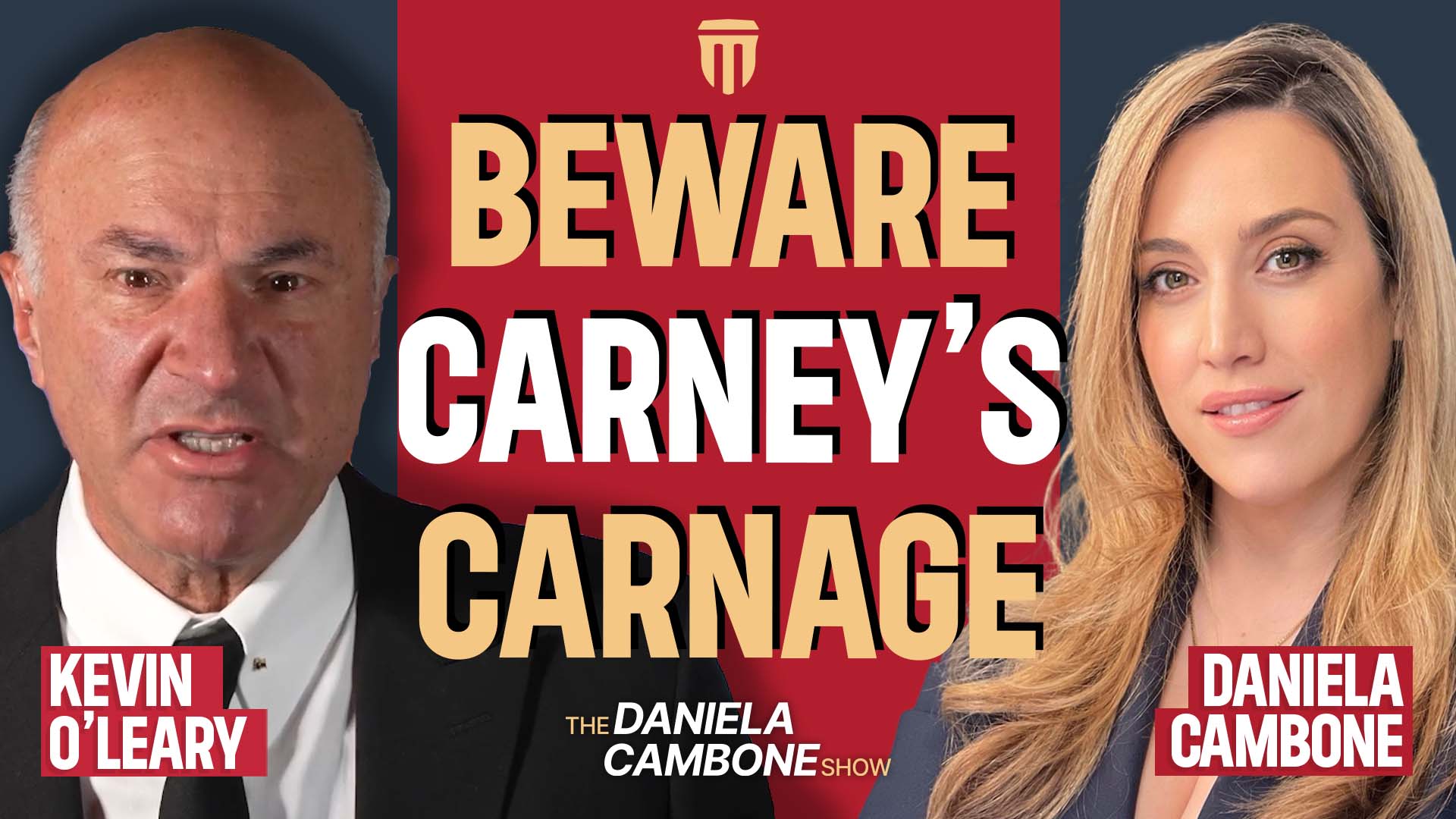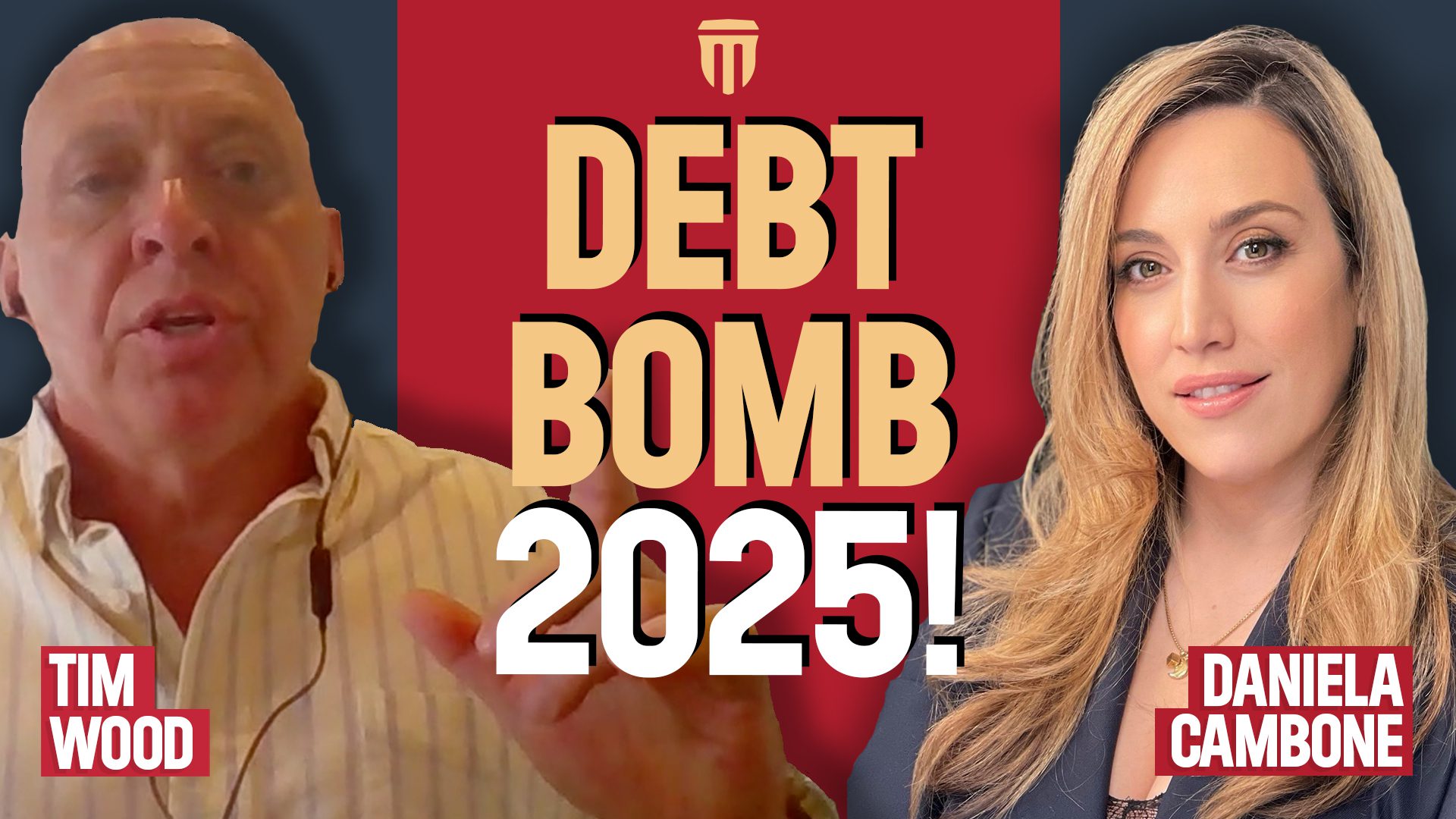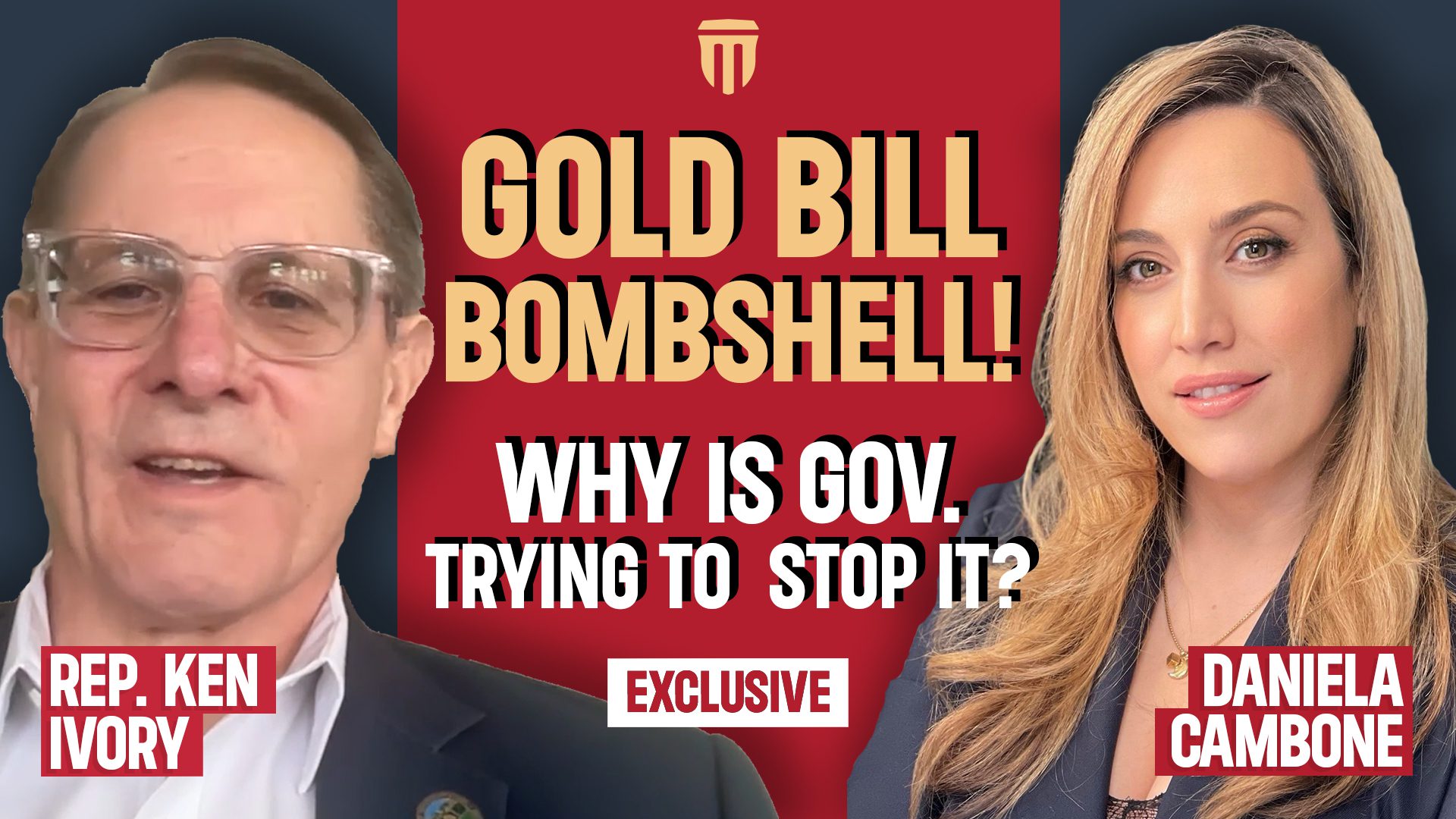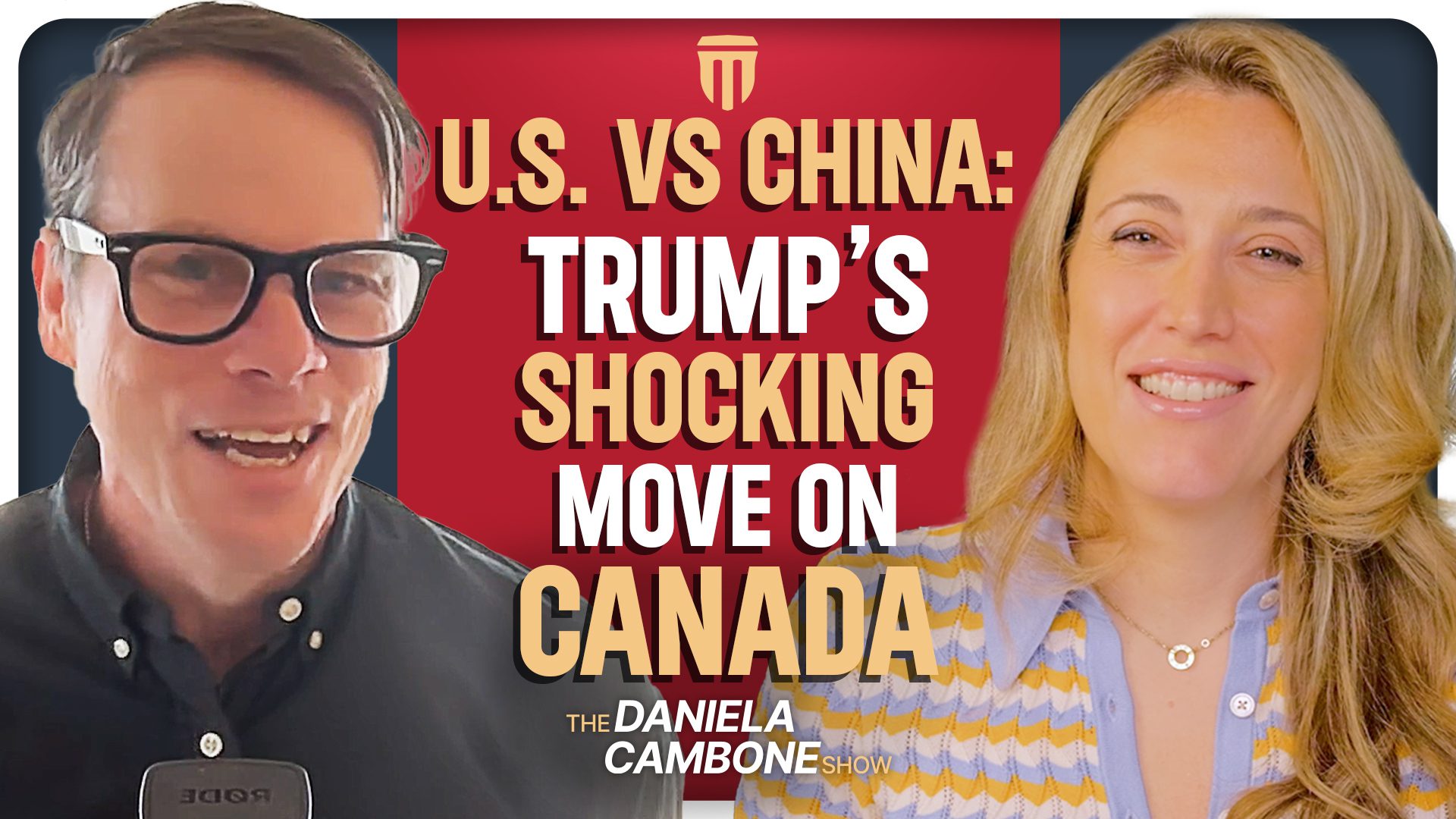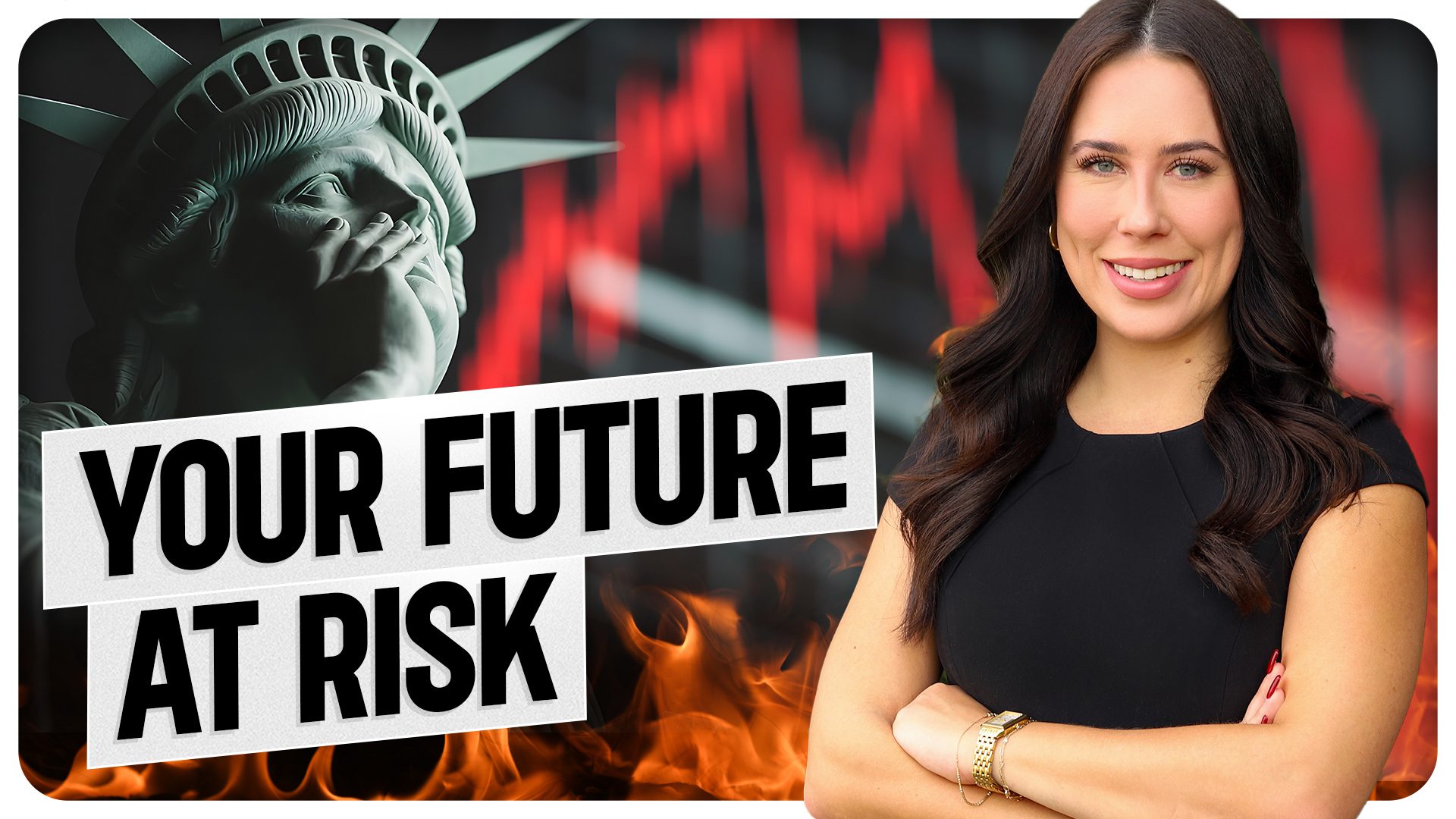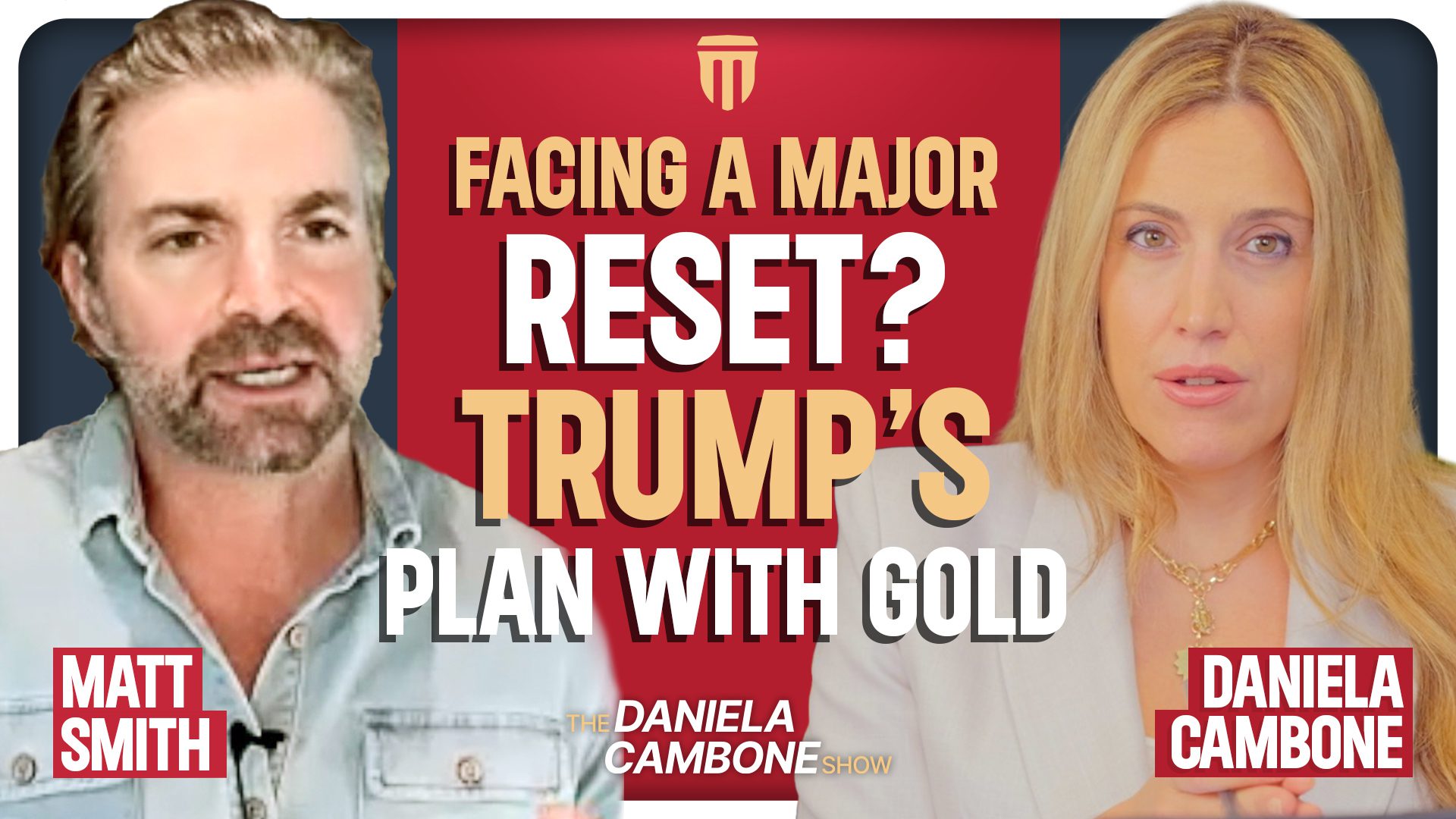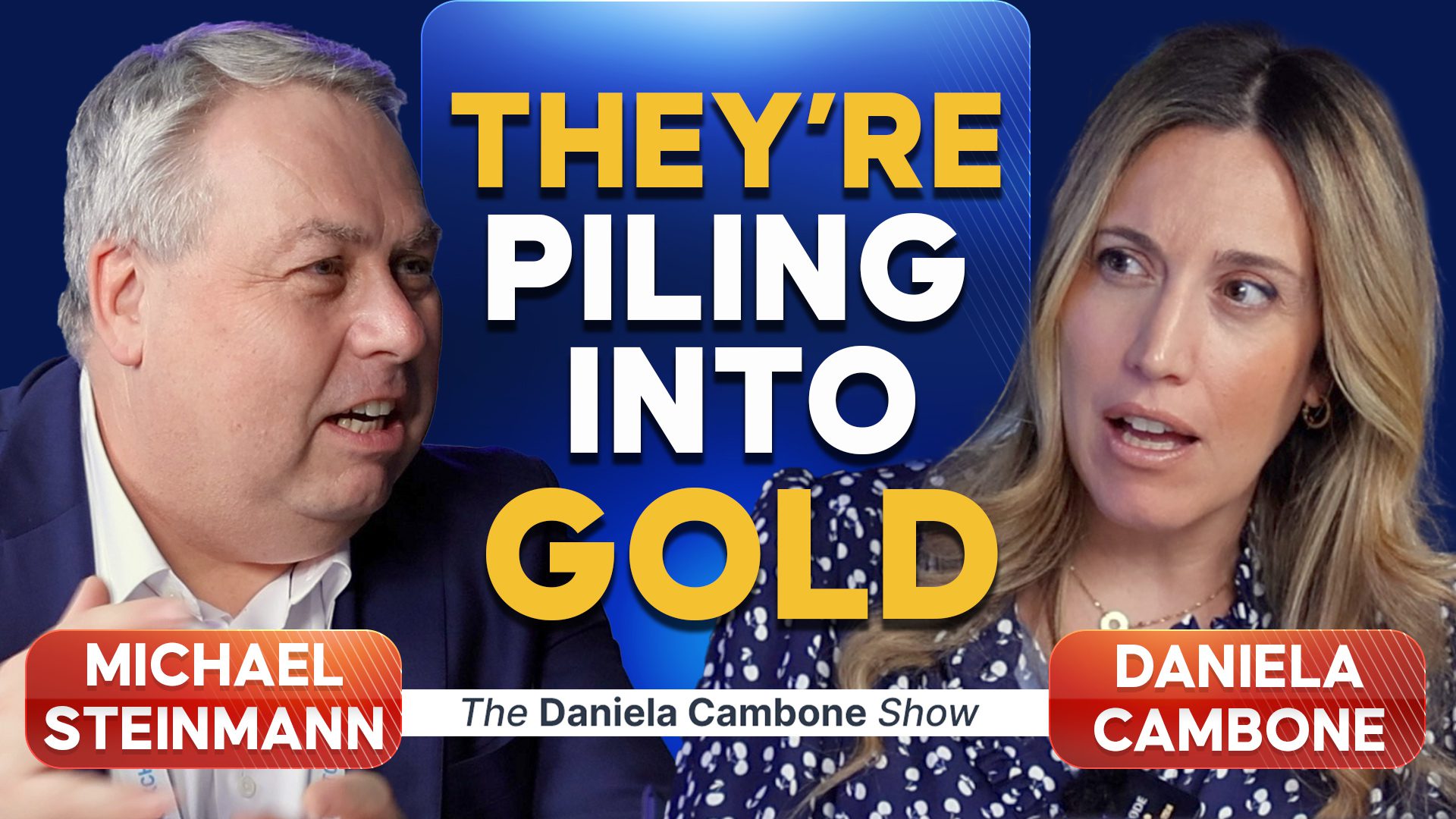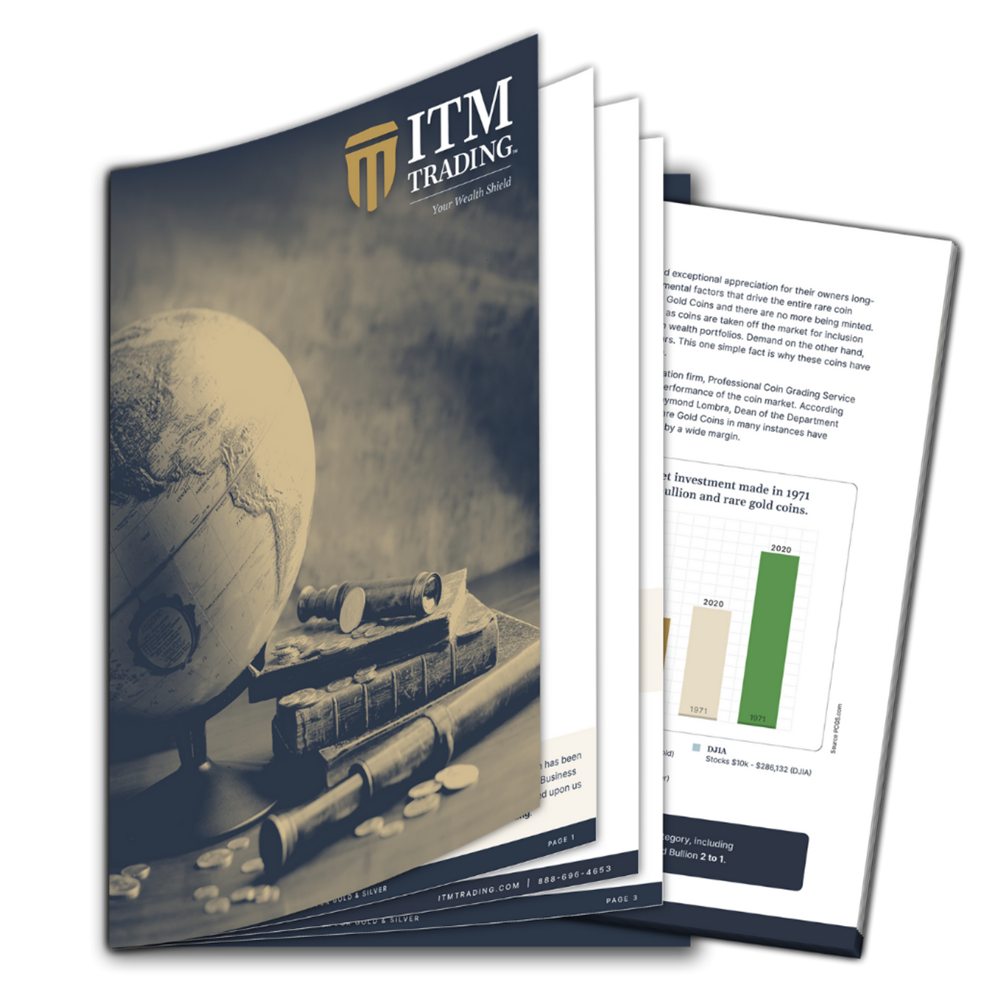Gold Set to Go Parabolic? It’s Just Like Dennis Rodman Says Jared Dillian
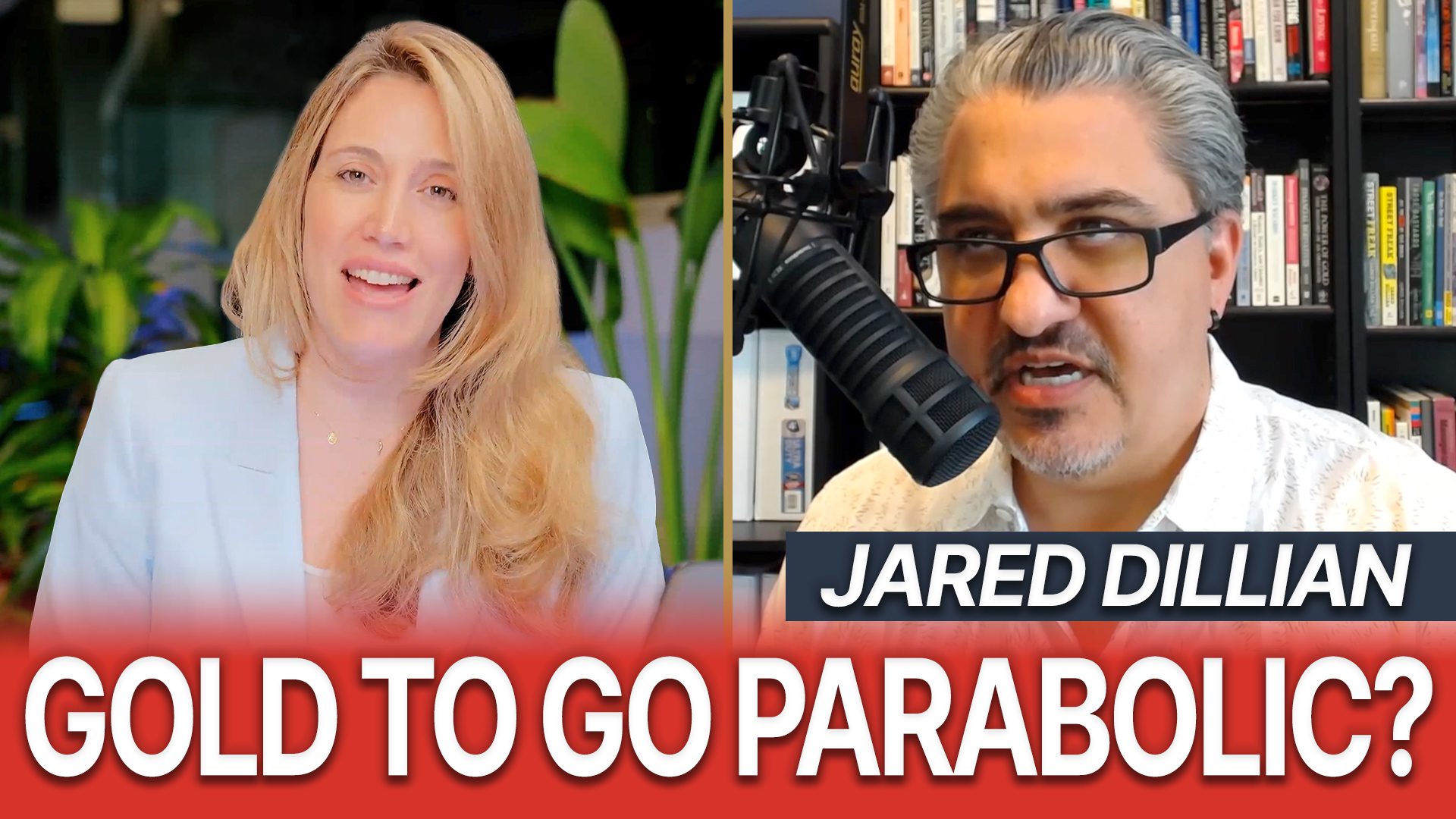
“The way I like to talk about gold is that gold is the Dennis Rodman of asset classes,” says Jared Dillian, renowned financial strategist and author of The Daily Dirt Nap. He explains that, like the famous basketball player whose role was to “rebound and pass the ball” to make the team successful, gold should be added to a mix of four other asset classes (cash, real estate, bonds, and stocks). This, he suggests, supercharges the portfolio and reduces volatility. He also advises people to start saving now, emphasizing that “it’s never too late to start saving.”
Regarding the housing market, Dillian expresses an optimistic view but also voices his concerns. “The American dream of owning a house is honestly probably over for the time being.” However, he states that as demand rises, housing prices will take off in the future. He advises people not to wait and assures them that they can always refinance later.
CHAPTERS:
00:00 Jared’s “The awesome portfolio”
3:09 Stock market
4:37 Gold investment
6:19 Retirement reality
9:15 Fed’s decision and consumer implications
11:39 Recession
12:37 Housing market
14:46 Economic concerns
TRANSCRIPT FROM VIDEO:
00:06
Hi folks. It’s clear based on many of these interviews that we are living in precarious times. And that’s why it’s imperative to build a strategy based around owning physical gold and silver. If you have not done so yet, I urge you to book a Calendly appointment with one of my incredible colleagues over at ITM Trading. It’s super simple to do. It’s a free information session and you’ll just walk away with a wealth of information.
00:34
You can do so by booking an appointment in the Calendly link in the description below of the video. That said, let’s get to today’s interview. Hi, this is Daniela Cambone. Welcome back to the Daniela Cambone show. With me now, Jared Dillian. He’s a writer, trader, musician, entrepreneur, and educator. He’s also the man behind the newsletter, The Daily Dirt Nap, and many books including Street Freak, All the Evil of This World.
01:04
and many more. Jared, nice to meet you. Welcome to the show. Hey, thanks for having me. Yeah. I mean, I’ve, I’ve seen you all over social media. And one thing that caught my attention, uh, and where I said, I, I need to get you on to learn more is this awesome portfolio, uh, strategy that you’ve created. I know a big mantra of yours is, is, you know, you want to educate people, uh, you want to make investing stress free.
01:30
But it can be nerve-racking. So let’s go over your awesome portfolio. I know that 20% of it is gold But tell me more. Yeah, it’s 20% stocks 20% bonds 20% gold 20% cash and 20% real estate And it’s really a variation on the permanent portfolio by Harry Brown With the addition of real estate and real estate really does some interesting things to it
01:57
gives the portfolio a little bit more exposure to inflation, which is good right now. But basically, the reason I came up with this is because the conventional wisdom around saving for your retirement is you put all your money in the S&P 500 and it grows over time and it compounds at like 12% a year and you have a pile of money at the end. But the problem with that is if you invest in an index.
02:25
Not only do you get the returns of the index, you get the volatility of the index. And the S&P 500 is pretty volatile. In any given year, you could be up or down 10, 15, 20% or more. And that volatility causes you stress. And stress is really the enemy. Stress when you invest causes you to make bad decisions. The whole purpose of volatility is to make people make bad decisions. So for example, if you have a really big drawdown,
02:55
like you did in 2008 and 2009, that might cause you to panic and sell your investments at the worst possible time, and then you stop compounding. So the awesome portfolio is really the antidote to that. How do you deal with not suffering from fear of missing out? Because many will say, well, the stock market is the ultimate money making machine. And if you skip out on it, well, you could miss out on making tons of cash.
03:21
So let me go through the numbers. So the stock market over the last 50 years has returned a little over 9% a year. And the awesome portfolio has returned 8.1% a year. So you’re really only doing 1% worse. And in return, you’re getting about half the volatility. And if you look at drawdowns, the worst drawdown in the history of the awesome portfolio was down 12.2%.
03:50
The worst drawdown over the same time period for the stock market was down 38% in 2008. In 2008, the awesome portfolio was down 9.8%. So by cutting your volatility in half and by reducing your drawdowns, you only give up 1% less in terms of performance. Now 1% compounded over a number of years ends up being a lot of money. But my point is, is that that…
04:19
fear of missing out doesn’t really matter because during the bad times, you will engage in suboptimal investor behavior and sell your portfolio at the worst possible time. So you won’t realize that 9. whatever percent.
04:37
Jared, talk to me a little bit more about the gold aspect. I mean, obviously many in my audience are big precious metal holders. Are you bullish gold right now? I am bullish gold, but really my feelings on gold don’t really enter into it with the awesome portfolio. See, the thing with the awesome portfolio is that gold is the ultimate diversifier, right? Because gold is not correlated to stocks, it’s not correlated to bonds.
05:05
It’s not really correlated to anything. Sometimes it’s correlated to stuff, but those correlations are very unstable and don’t last over time. So the way I like to talk about gold is, gold is the Dennis Rodman of asset classes, right? So let me explain that. So Dennis Rodman is in the basketball hall of fame, but he only scored like six points a game, okay? So if you had a team full of Dennis Rodmans, it would be the worst team in basketball because it doesn’t score.
05:34
But Dennis Rodman can do other things. He can rebound and pass the ball. So when you take Dennis Rodman and add him to a team with four guys that can score, it becomes a championship team. So if you had a portfolio that was just gold, it would not be all that exciting. It would be like a team full of Dennis Rodmans. But when you take gold and add it to four other asset classes, it supercharges the portfolio and cuts down on the volatility.
06:02
All right. This is an analogy I can get behind. Then who is the Jordan and who’s the Pippin? Well, Jordan is probably stocks and Pippin is probably real estate, I think. You mentioned retirement before. And here’s a stat that I found quite concerning that more than one quarter of US adults over age 50, Jared said, they expect to never retire.
06:29
And 70% are concerned about prices rising faster than their income. This is according to an ARP survey. And about one in four have no retirement savings. I bring this up because I get so many emails, Jared, heartbreaking where people retired and now in this economy have been forced to go back and find some part-time work. What do you make of this and folks who…
06:57
feel they can’t retire given the landscape they’re living in? Well, it’s a function of three things. It’s a function of not saving enough, not investing in the right way, but also not investing early enough. I think that’s the mistake that most people make. You can do a math problem, and I’ve done this math problem before. If you invest from age 22 to 32 right out of college,
07:26
and then you don’t invest after that, you actually make more money than if you invest from age 32 to 62, but not before then, right? So what you do in the first 10 years after graduating from college is super important. This is really interesting. Actually heard from one of my old Lehman buddies today. He sent me a DM on Twitter, and he said that he maxed out his 401k contribution.
07:55
while he was at Lehman in the S&P 500 from 1998 to 2007, he hasn’t touched it since then, and it’s now worth seven figures, right? So it’s all about investing early as much as you possibly can and letting it compound. Of course, but here’s the issue with that is that most of us didn’t know what we know now. So.
08:18
Maybe people were not thinking about investing, you know, in their early years, and maybe they didn’t have the money to invest. They weren’t making, you know, any sufficient salary to put some money in investing. So for those who maybe missed the boat, I mean, is it what are things we can do? Or is it too late? Well, it’s never too late. I mean, once you get past about age 55, then it’s kind of too late. Um, you know, my own, my own mom, my mom.
08:47
hadn’t saved anything until age 45. And from age 45 to 65, she managed to save about $400,000. And then from age 65 to 70, it doubled. So she’s very comfortable in retirement. So, you know, even if you start in middle age, if you do it aggressively, you can catch up. What do you make of the feds?
09:14
latest that basically nothing’s going to change for now. But at the same time, consumers hitting a wall here. We see that people unable to pay credit card debt. I spoke about folks worried about retiring. So the Fed not reading the room. When are they going to give some breathing room to consumers? Yeah. What you’ve seen over the last few weeks is that the economic data, as you said,
09:44
We had retail sales this morning, which were pretty bad. Like you said, consumers are hitting the wall. Uh, job openings are down. Uh, Chicago PMI was really bad. We’ve had this run of like really soft data and what it looks like what’s happening is the savings from the stimulus in 2020 is finally running out. Like you’ve seen, like I’ve seen charts of that, like, you know, you can see like a big bump in savings in 2020.
10:13
and it’s been going down over time and people are finally depleted. And yeah, I mean, I, you know, if you, if you look at the data, like we are in the midst of a slowdown, the Fed is, I think they’re going to cut in September, but, um, you know, really what matters is whether it turns into a rate cut cycle, uh, at some point after the election. And we just don’t have the answer to that. A lot of things are going to change between now and.
10:41
Why do you think September right before the election? Well, I think, um, you know, well, first of all, this is what they’ve said. I mean, this is, you know, straight from the fed’s mouth. I mean, they’ve been talking about this hypothetical September cut for a long time. Uh, I mean, look, like if you’re going to be really cynical about it, it’s really about optics going into the election, uh, to favor an incumbent president, I don’t think the fed really likes Donald Trump.
11:07
after he exerted all that pressure on the Fed during his first term in 2017 and 2018 for the Fed to cut to zero. So I think it’s both those things. But I think monetary policy could have two radically different paths depending on who’s elected. I think if Biden is reelected, it’s probably going to be more of this higher for longer trade.
11:34
I think if Trump gets elected, you could see a series of rate cuts.
11:41
What’s your take on? Recession Jared I’ve had some experts on recently who have said you know what based on the data They’re seeing it looks like we may have entered a recession back in October Your take because we kind of stopped using the our word in mainstream media now kind of stopped talking about you know Whether it was coming or not. Where do you see us? You know, I uh, you know as a newsletter writer I have an email inbox
12:08
and I have a lot of subscribers that send me anecdotes. And just if you’re going off the anecdotes, I kind of have like my own little personal beige book and people send me anecdotes about things slowing down all the time. So this evidence has been accumulating for a number of months and that things are slowing down, but it hasn’t really shown up in the data. So until recently. I want to…
12:36
Get your thoughts on one last thing before we wrap, Jared. You mentioned obviously the election and the number one issue for young voters is housing and how they feel right now, they’ll never be able to afford a house. Just for some stats, most people are buying their first home right now at 35 compared to somewhere in your 20s back in the 80s. Thoughts on housing and is the American dream alive?
13:05
or not anymore? Yeah, I actually bought my first house when I was 24, back in 1999. So I get it. The American dream of owning a house is honestly probably over for the time being. And my long-term view of housing, housing prices, is very bullish based on the fact that 10 million people just entered the country. And over time, they’re going to get jobs. They’re going to earn money. Their kids are going to get jobs.
13:34
and we are not building houses fast enough to account for this drastic increase in the population. If you see what happened to Canada in the 2010s, they started their immigration policy. They were letting 2% of the country in every year. Their housing prices went parabolic and have not come down. So I think housing as an asset class is probably going to go up, which means it’s very bad news for young people trying to buy a house and buy their first house. Wow.
14:04
So, I mean, what is one to do? What would be your suggestion there? I mean, look for super remote areas or… Yeah, I mean, you can, you know, you can buy in more rural areas and try to get the cost down. But oftentimes young people, they’re in this conundrum where they say, you know, housing prices have gone up. I have to put $100,000 down payment. The interest rates are 7%. Houses are not affordable. So I’m going to wait for housing prices or interest rates to come down.
14:34
And my advice would be not to wait. Just do it. You can always refinance later. Um, so yeah, that would be my advice. Last thing, like you said, you write a daily dirt, dirt, not, um, what top of mind for you, I mean, top three or two concerns that you’re seeing in the economy that keep you up at night, perhaps, or maybe you’re sleeping well, but what are you on?
15:01
Definitely the proliferation of private equity and private credit. I think private equity and private credit represent a source of very concentrated risk in illiquidity that if it blows up has the potential to maybe not cause a recession, but make one much, much worse over time. You know, liquidity tends to find a way. So if these assets are sold at the stress levels,
15:29
it’s going to have a domino effect throughout the entire economy.
15:37
All right. Definitely something to watch. Jared Dillian. Thank you so much for coming on. Thank you very much. And thank you for watching. We’ll have more content coming your way. So be sure to stay tuned to the Daniela Cambone. And sign up at danielacambone.com Thanks for watching.
SOURCES:
https://www.dailydirtnap.com/
https://twitter.com/dailydirtnap
https://www.jareddillianmoney.com/awesome-portfolio-details
https://www.youtube.com/watch?v=XBoVDIvOrfI
https://press.aarp.org/2024-4-24-New-AARP-Survey-1-in-5-Americans-Ages-50-Have-No-Retirement-Savings
https://www.youtube.com/watch?v=FKZM6XeDb4g
